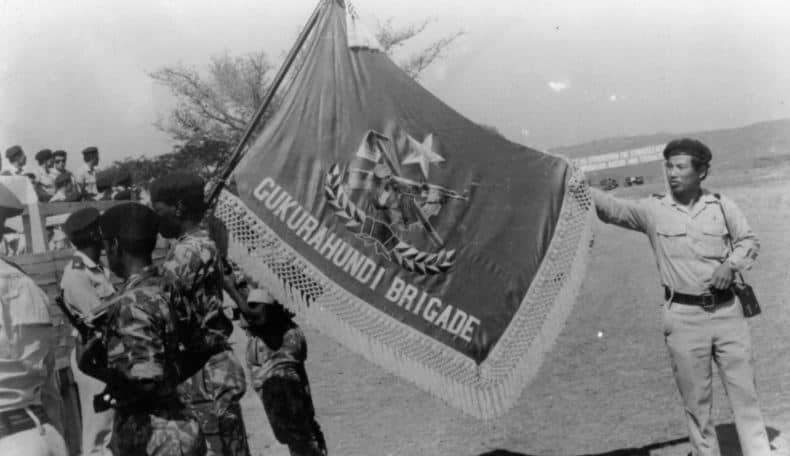London: British officials repeatedly downplayed the massacre of thousands of innocent people by Robert Mugabe in Zimbabwe in the 1980s to protect the UK’s interests in southern Africa and their relationship with the former colony’s new ruler, new research has claimed.
According to thousands of documents obtained under the Freedom of Information Act by Dr Hazel Cameron, a lecturer in international relations at the University of St Andrews in Scotland, British officials in London and Zimbabwe were “intimately aware” of the atrocities but consistently minimised their scale.
Cameron described the policy as one of “wilful blindness”.
“The British government could have influenced authorities in Zimbabwe but put political and economic interests first … There were steps they could have taken and they chose not to,” she said.
Mugabe took power in elections held in 1980 following a gruelling and brutal guerilla struggle against white minority rule in what was known as Rhodesia. His Zanu-PF party won more than 60% of the vote.
In 1983 the new leader launched a massive security clampdown in parts of Matabeleland, the heartland of the Ndebele ethnic minority and a stronghold of his political rival, Joshua Nkomo. The operation, prompted by scattered murders and attacks on property allegedly by members of Nkomo’s political party, was spearheaded by the Fifth Brigade of the new Zimbabwean national army and portrayed as directed against “bandits”. The unit had been trained by North Korean military specialists and was fanatically loyal to Mugabe.
Over a nine-month period the Fifth Brigade killed, tortured and raped tens of thousands of unarmed civilians. In all, historians of the period believe, between 10,000 and 20,000 died in the atrocities, and many more suffered severe physical or psychological harm.
The new documents include hundreds of cables exchanged by Robin Byatt, the British high commissioner in Harare, with officials in London. These, Cameron says, reveal the British official attitude towards Zimbabwe in the first months of the massacres. the guardian













